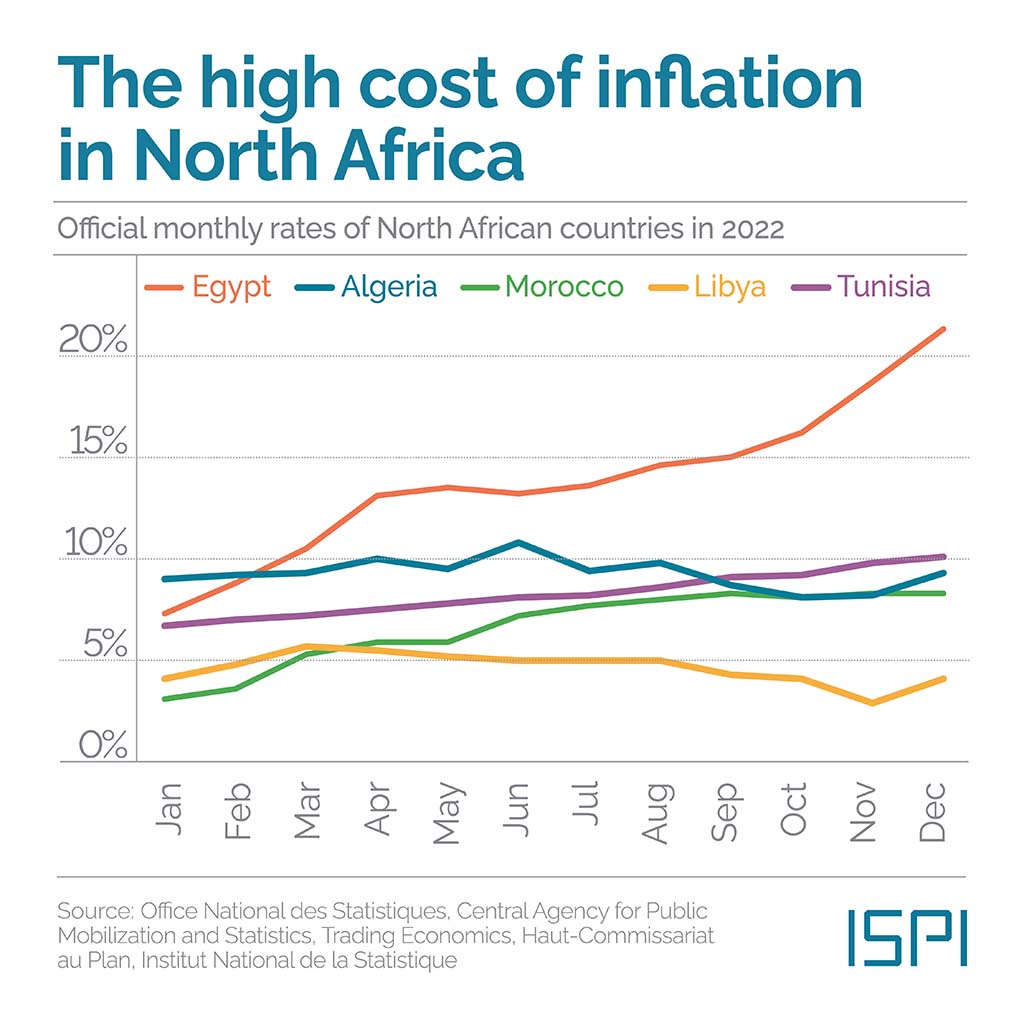Report on the Goldwater Institute v. EEOC Lawsuit and its Implications for Sustainable Development Goals
Executive Summary
A federal lawsuit has been initiated by the Goldwater Institute against the U.S. Equal Employment Opportunity Commission (EEOC). The lawsuit seeks to compel the EEOC to release information regarding its $15 million age discrimination case against Meathead Movers, a California-based company. This report analyzes the dispute through the framework of the United Nations Sustainable Development Goals (SDGs), with a particular focus on SDG 8 (Decent Work and Economic Growth), SDG 10 (Reduced Inequalities), and SDG 16 (Peace, Justice and Strong Institutions).
Background of the Dispute
The core issue involves an agency-initiated investigation by the EEOC into the employment practices of Meathead Movers, a company known for its physically demanding business model.
- The Defendant Company: Meathead Movers, founded in 1997, is California’s largest independently owned moving company, employing over 300 individuals. Its operational model requires high levels of physical fitness.
- The EEOC Investigation: In 2017, the EEOC began an investigation, alleging that the company’s hiring practices and marketing materials were discriminatory against older applicants. This action was initiated by the agency without a formal complaint from an alleged victim.
- The Goldwater Institute’s Action: In response to the EEOC’s investigation, the Goldwater Institute filed a public records request to determine if any individual complaints had been filed. After the EEOC denied the request citing privacy, the Institute filed a lawsuit to enforce federal transparency laws.
Analysis of Sustainable Development Goal Alignment
The conflict highlights tensions between several key SDGs, particularly concerning the balance between promoting equality, ensuring institutional accountability, and fostering economic growth.
SDG 10: Reduced Inequalities
The EEOC’s case against Meathead Movers is fundamentally aligned with the objectives of SDG 10, which aims to reduce inequality within and among countries.
- Target 10.2: By 2030, empower and promote the social, economic and political inclusion of all, irrespective of age, sex, disability, race, ethnicity, origin, religion or economic or other status.
- Target 10.3: Ensure equal opportunity and reduce inequalities of outcome, including by eliminating discriminatory laws, policies and practices.
The EEOC’s action can be interpreted as a direct effort to enforce Target 10.3 by challenging hiring practices perceived as creating barriers for older workers, thereby promoting inclusion as outlined in Target 10.2.
SDG 8: Decent Work and Economic Growth
The lawsuit raises critical questions related to SDG 8, which seeks to promote sustained, inclusive, and sustainable economic growth, full and productive employment, and decent work for all.
- Target 8.3: Promote development-oriented policies that support productive activities, decent job creation, entrepreneurship, creativity and innovation, and encourage the formalization and growth of micro-, small- and medium-sized enterprises.
- Target 8.5: By 2030, achieve full and productive employment and decent work for all women and men, including for young people and persons with disabilities, and equal pay for work of equal value.
From one perspective, the EEOC’s case supports Target 8.5 by ensuring non-discriminatory access to employment. However, the Goldwater Institute argues that the $15 million enforcement action against a successful small and medium-sized enterprise (SME) without a public complaint could stifle entrepreneurship and economic growth, running counter to the spirit of Target 8.3.
SDG 16: Peace, Justice and Strong Institutions
The Goldwater Institute’s lawsuit directly invokes the principles of SDG 16, which focuses on building effective, accountable, and inclusive institutions at all levels.
- Target 16.6: Develop effective, accountable and transparent institutions at all levels.
- Target 16.10: Ensure public access to information and protect fundamental freedoms, in accordance with national legislation and international agreements.
The core of the lawsuit is the demand for government transparency. By suing for the release of records, the Goldwater Institute is advocating for the principles of Target 16.6 and 16.10, arguing that public institutions like the EEOC must be accountable for their actions, especially when they impact private businesses and the broader economy.
Conclusion and Forward Outlook
The legal battle between the Goldwater Institute and the EEOC serves as a case study on the complex interplay of sustainable development principles. While the EEOC’s mandate to combat age discrimination aligns with SDG 10, the methods employed and the lack of transparency have raised significant concerns related to SDG 8 and SDG 16. The outcome of this lawsuit will have important implications for the balance between regulatory enforcement, the protection of SMEs, and the fundamental requirement for institutional accountability and public access to information.
1. Which SDGs are addressed or connected to the issues highlighted in the article?
SDG 8: Decent Work and Economic Growth
- The article discusses employment practices, specifically an allegation of age discrimination by the Equal Employment Opportunity Commission (EEOC) against Meathead Movers. This relates to the goal of promoting “full and productive employment and decent work for all.” The case questions what constitutes fair hiring practices, especially in physically demanding jobs, which is central to the concept of decent work.
SDG 10: Reduced Inequalities
- The core accusation against Meathead Movers is “age discrimination,” which directly connects to SDG 10’s aim to reduce inequality. The EEOC’s lawsuit is an action intended to address alleged discrimination against older applicants, aligning with the goal of ensuring equal opportunity for all, irrespective of age.
SDG 16: Peace, Justice and Strong Institutions
- This goal is central to the article’s focus on the legal and institutional conflict. The Goldwater Institute’s lawsuit against the EEOC is about demanding transparency and accountability from a government institution. The article highlights the need for “effective, accountable and transparent institutions,” as the Institute argues the EEOC is wielding its power against a private business without public justification. The entire narrative revolves around the rule of law, access to information, and the proper functioning of justice systems.
2. What specific targets under those SDGs can be identified based on the article’s content?
Under SDG 8: Decent Work and Economic Growth
- Target 8.5: “By 2030, achieve full and productive employment and decent work for all women and men… and equal pay for work of equal value.” The EEOC’s case against Meathead Movers for alleged age discrimination directly challenges whether the company’s hiring practices prevent “decent work for all” by potentially excluding a specific age group from employment opportunities.
Under SDG 10: Reduced Inequalities
- Target 10.3: “Ensure equal opportunity and reduce inequalities of outcome, including by eliminating discriminatory laws, policies and practices…” The EEOC’s lawsuit is a direct attempt to enforce policies against discrimination. The article states the EEOC accused the company of “discriminating against older applicants,” which is an action aimed at fulfilling this target.
Under SDG 16: Peace, Justice and Strong Institutions
- Target 16.3: “Promote the rule of law at the national and international levels and ensure equal access to justice for all.” The article describes a legal battle where both the EEOC and the Goldwater Institute are using the federal court system to resolve a dispute, which is an application of the rule of law.
- Target 16.6: “Develop effective, accountable and transparent institutions at all levels.” This is the primary focus of the Goldwater Institute’s lawsuit. They are suing the EEOC specifically because the agency “denied the request” for public records, thereby challenging its accountability and transparency. The Institute’s statement that “Transparency is a legal requirement” directly invokes this target.
3. Are there any indicators mentioned or implied in the article that can be used to measure progress towards the identified targets?
Indicators for SDG 8 and SDG 10
- Number of discrimination complaints filed by individuals: The article implies this is a key indicator. The Goldwater Institute is suing to find out “whether any individuals had actually filed complaints against Meathead Movers.” The absence or presence of such complaints is a measure of perceived discrimination.
- Number of agency-initiated discrimination lawsuits: The article notes that the EEOC’s case is “an ‘agency-initiated’ lawsuit” and that the agency “only pursues a small number of such cases each year.” This number serves as an indicator of proactive government enforcement against perceived systemic discrimination.
Indicators for SDG 16
- Number of public records requests filed and their outcomes: The article explicitly mentions that the Goldwater Institute “submitted a public records request” and that the “EEOC denied the request.” The ratio of requests granted to requests denied is a direct indicator of institutional transparency.
- Number of lawsuits filed to enforce transparency laws: The existence of the Goldwater Institute’s “federal lawsuit against the Equal Employment Opportunity Commission (EEOC), demanding answers” serves as an indicator of perceived failures in institutional accountability and the efforts to correct them through legal channels.
4. Table of SDGs, Targets, and Indicators
| SDGs | Targets | Indicators |
|---|---|---|
| SDG 8: Decent Work and Economic Growth | 8.5: Achieve full and productive employment and decent work for all. |
|
| SDG 10: Reduced Inequalities | 10.3: Ensure equal opportunity and reduce inequalities of outcome, including by eliminating discriminatory policies and practices. |
|
| SDG 16: Peace, Justice and Strong Institutions | 16.3: Promote the rule of law and ensure equal access to justice.
16.6: Develop effective, accountable and transparent institutions. |
|
Source: azfreenews.com







